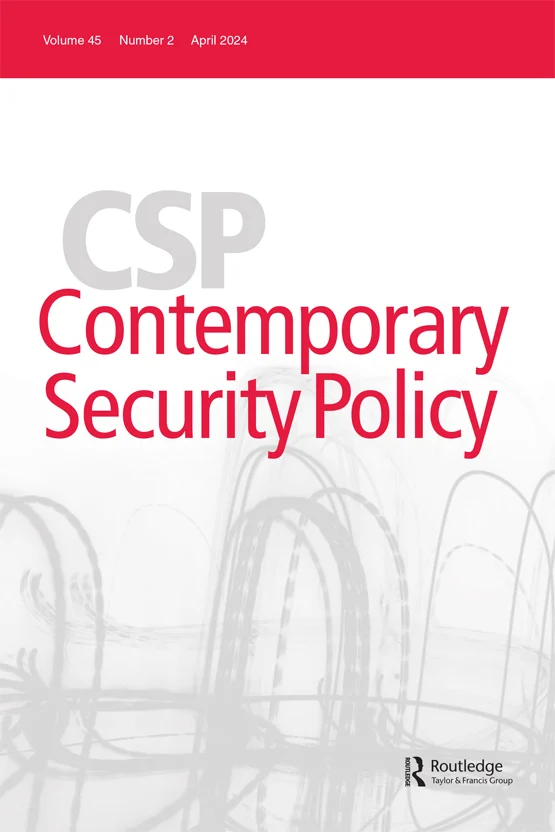Whether to worry: Nuclear weapons in the Russia-Ukraine war
IF 5
1区 社会学
Q1 INTERNATIONAL RELATIONS
引用次数: 1
Abstract
ABSTRACTRussia’s war in Ukraine directly speaks to a core theory in nuclear politics: the theory of the nuclear revolution. Whereas this theory argues that nuclear weapons inhibit conflict and competition in international politics, skeptics of the nuclear revolution argue that competition endures in a nuclear world, and that nuclear weapons can even enable such competition. This article argues that the Russia-Ukraine war challenges expectations of the theory of the nuclear revolution, while largely supporting arguments made by the nuclear revolution skeptics. Specifically, the article argues that the theory of the nuclear revolution cannot explain Russia’s use of nuclear threats to enable its conventional aggression, nor can it explain the ways in which Russia has developed its nuclear posture to provide a bargaining advantage in competitive risk-taking scenarios. These findings challenge the leading theory in the field of nuclear politics and yield policy implications for maintaining nuclear stability during crises.KEYWORDS: War in Ukrainenuclear revolutiondeterrenceemboldenmentnuclear weapons AcknowledgementsThe author thanks the two anonymous reviewers for their helpful comments and suggestions on an earlier draft of this article.Disclosure statementNo potential conflict of interest was reported by the author(s).是否需要担心:俄乌战争中的核武器
俄罗斯在乌克兰的战争直接谈到了核政治的一个核心理论:核革命理论。这一理论认为,核武器抑制了国际政治中的冲突和竞争,而对核革命持怀疑态度的人则认为,在一个有核的世界里,竞争依然存在,核武器甚至可以使这种竞争成为可能。本文认为,俄乌战争挑战了对核革命理论的期望,同时在很大程度上支持了核革命怀疑论者的论点。具体来说,这篇文章认为,核革命理论不能解释俄罗斯使用核威胁来实现其常规侵略,也不能解释俄罗斯如何发展其核态势,以便在竞争性冒险情景中提供讨价还价的优势。这些发现挑战了核政治领域的领先理论,并产生了在危机期间维持核稳定的政策含义。作者感谢两位匿名审稿人对本文早期草稿的有益评论和建议。披露声明作者未报告潜在的利益冲突。
本文章由计算机程序翻译,如有差异,请以英文原文为准。
求助全文
约1分钟内获得全文
求助全文
来源期刊

Contemporary Security Policy
Multiple-
CiteScore
14.60
自引率
6.80%
发文量
22
期刊介绍:
One of the oldest peer-reviewed journals in international conflict and security, Contemporary Security Policy promotes theoretically-based research on policy problems of armed conflict, intervention and conflict resolution. Since it first appeared in 1980, CSP has established its unique place as a meeting ground for research at the nexus of theory and policy.
Spanning the gap between academic and policy approaches, CSP offers policy analysts a place to pursue fundamental issues, and academic writers a venue for addressing policy. Major fields of concern include:
War and armed conflict
Peacekeeping
Conflict resolution
Arms control and disarmament
Defense policy
Strategic culture
International institutions.
CSP is committed to a broad range of intellectual perspectives. Articles promote new analytical approaches, iconoclastic interpretations and previously overlooked perspectives. Its pages encourage novel contributions and outlooks, not particular methodologies or policy goals. Its geographical scope is worldwide and includes security challenges in Europe, Africa, the Middle-East and Asia. Authors are encouraged to examine established priorities in innovative ways and to apply traditional methods to new problems.
 求助内容:
求助内容: 应助结果提醒方式:
应助结果提醒方式:


